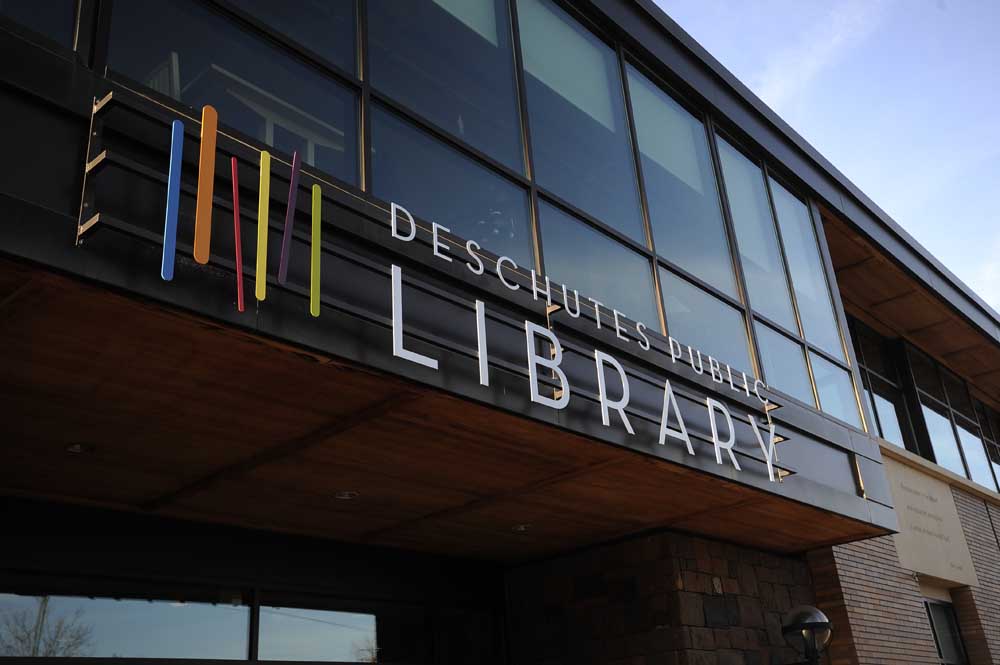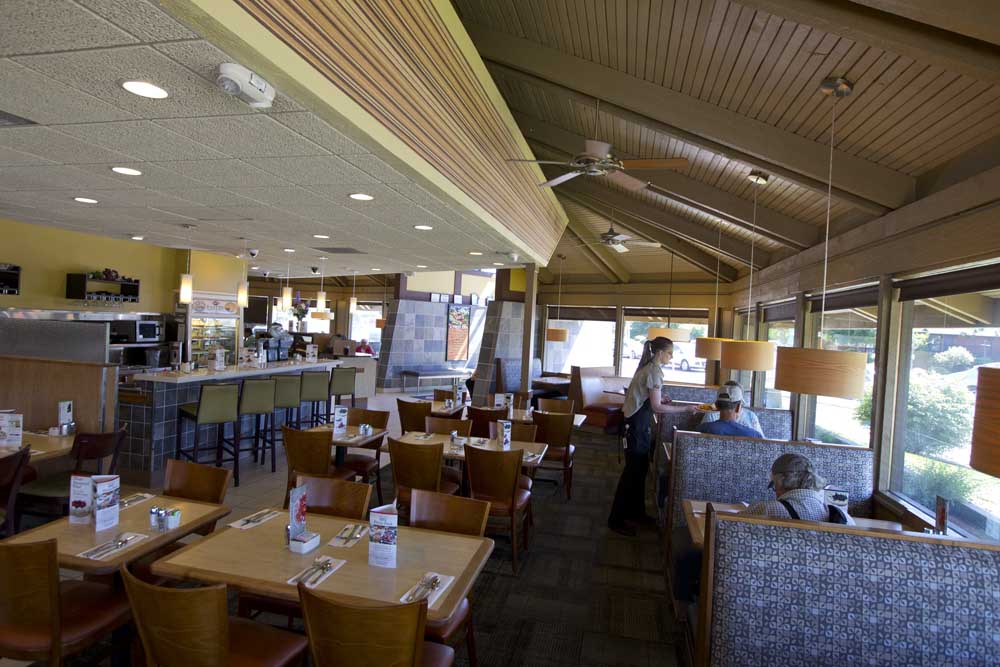Central Oregon libraries beef up digital offerings due to coronavirus closures
Published 6:30 am Tuesday, March 24, 2020

- The front entrance of the Downtown Bend Public Library.
Central Oregon’s libraries may be closed due to the spread of COVID-19, but all three local county library systems are using the internet to keep people reading and learning.
The Deschutes, Crook and Jefferson county libraries have increased their collections of digital books, movies and TV in the wake of the coronavirus pandemic. The library systems’ eight combined branches are closed until at least April 1 in Deschutes and Jefferson counties and April 13 in Crook County.
Deschutes Public Library system has moved 100% of its collection spending to digital offerings, according to Library Director Todd Dunkelberg. It is spending $1,000 more per week on digital children’s materials and multiplied its spending on adult materials nearly fivefold, from $7,000 per week to $33,000 per week, he said.
Crook County’s director of library services, Buzzy Nielsen, said his library and Jefferson County Library District will also likely end up spending more money on online resources during the coronavirus closures. The two smaller library systems pay Deschutes Public Library system to use the OverDrive system for e-books and audiobooks, and their bills depend on the number of checkouts, Nielsen said.
As a result of these increased offerings, checkouts of digital materials surpassed 2,000 per day between March 14 and Saturday in Deschutes County, falling just below that threshold Sunday, according to statistics provided by Dunkelberg. As far back as mid-February, checkouts never passed 2,000 per day in Deschutes County before March 14.
“It’s plateauing out, but it’s been getting more use,” he said of online checkouts.
Nielsen said he’s also seen major growth in digital checkouts in Crook County.
“It depends on the resource, but we’re seeing increases in at least the 30-50% range, so pretty significant,” he said.
Along with ordering more digital materials, the Deschutes library system has increased checkout-per-month limits on online services, Dunkelberg said. For example, with the hoopla and Kanopy services — through which patrons can check out e-books, movies and television episodes — the limit was 10 items per month. Now, users can check out 15 items a month, Dunkelberg said.
Tumblebooks, an online collection of picture books and other children’s books, is now being offered for free to libraries. Deschutes’ libraries already had this service, but now Crook County Library has added it, said Nielsen.
Jefferson County Library District is posting videos of staff reading picture books to its YouTube channel and Facebook page, according to Jane Ellen Innes, the county’s library director. There will be three storytime videos per week: one in English, one in Spanish, and one in both languages, Innes said.
On Thursday, library staff members recorded a reading of the bilingual picture book “A Cat and A Dog/Un gato y un perro,” accompanied by a live cat and dog. Innes said the video storytime videos have been viewed by people as far away as Mexico and the state of New Mexico.
Nearly 16% of Jefferson County residents spoke a language other than English at home between 2014 and 2018 — a much higher percentage than Crook or Deschutes counties, according to U.S. Census data.
Deschutes Public Library system also has presentations and lectures available on its YouTube channel and Facebook page.
The Jefferson County library in Madras also began offering curbside book checkout Monday, Innes said. Patrons can call the library to place up to 15 holds, drive to the library and ring the doorbell. A staffer wearing gloves and a mask will then bring those items to the car, according to Innes.
“We’re trying to meet the needs of our customers, of course, and be safe at the same time,” she said. “We’re playing it day by day.”
Nielsen was concerned about a couple of services that the Crook County Library could no longer provide due to its closure. The first was an AARP-sponsored, in-person free tax service for low-income and elderly people who don’t want to, or can’t, use online services.
The other wasn’t a specific program, but rather the library’s function as a comfortable spot for Crook County’s homeless population to stay during the day, Nielsen said.
“A lot of homeless individuals spend their days at the library, because we’re warm and we accept everyone,” he said. “There’s really not anywhere during the day people experiencing homelessness can go.”
Dunkelberg and Innes had similar concerns. People experiencing homelessness and families without internet access in Deschutes County will suffer from library closures, Dunkelberg said.
“It’s not just a place to sit and stay warm, but it might be their only access to technology,” he said. “It’s a hardship on our community to do this.”
Still, the three library directors reassured their communities that although library doors may be closed, the libraries’ services are still available to families through other avenues.
“We are definitely still here; we’re offering it in a different way,” Nielsen said. “And once this passes, we’ll still be here for people.”






